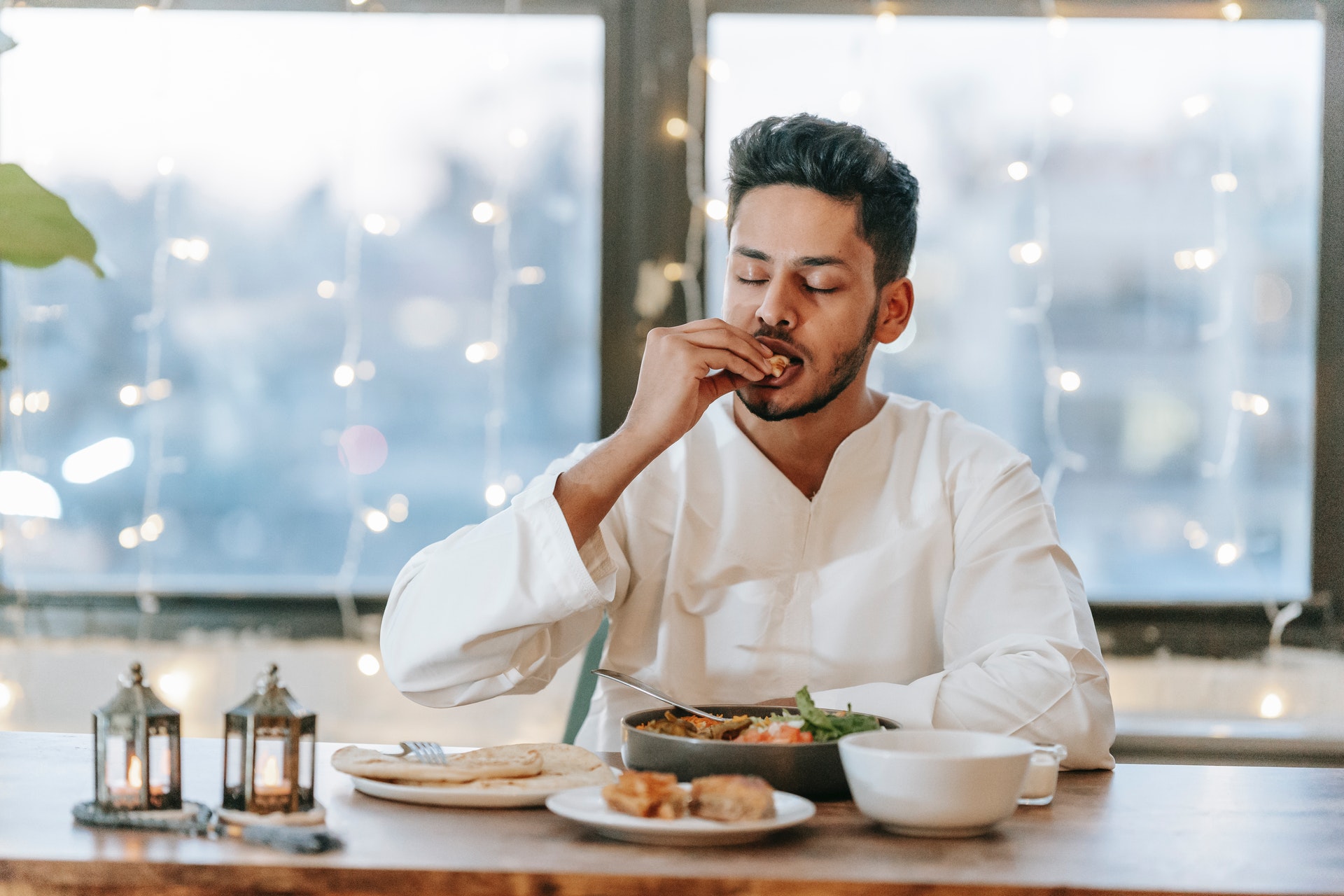The desire to lose weight has become a norm in our Western society. According to a study by the US Department of Health and Human Services, in 2013 -2016 almost half of the US adults tried to lose weight in the last 12 months, with women representing a higher percentage (56.4%).
This is the result of what has been called “The Diet Culture,” a set of beliefs that glorify thinness, appearance and shape, and goes as far as equating them to good health and well-being.
What can seem a harmless preoccupation with food and weight, can be the first manifestations of an incipient eating disorder. Normalized behaviours such as restricting calories, skipping meals, intense physical activity and the elimination of certain food groups; are warning signs of a diagnosable eating disorder that affects nearly 1 million Canadians, according to the National Eating Disorder Information Centre.
A person who falls prey to the diet culture may start by simply labelling certain foods as “good” or “bad,” deciding to have a food item depending on its calorie content, wanting to have total control over what they eat during the day by keeping track of the food eaten and planning ahead what they will eat later, and feeling the need to “deserve” to have food by eating less or exercising. The consequences of this restricting behaviour go further by causing the person to feel anxious around certain foods or to resort to binging and emotional eating, which ultimately leads to an unbearable feeling of guilt.
A survey conducted by the National Eating Disorders Association found that 35% of dieting becomes obsessive, meaning that the diet mentality can result in an obsession over food that can leave the individual feeling helpless.
Listening to the wisdom of our bodies
Success
You are now signed up for our newsletter
Success
Check your email to complete sign up
Nevertheless, there is hope to get out of this trap. In fact, we were born knowing how to eat normally. That is because as children, we ate following our internal cues of hunger and fullness. When we were hungry, we would ask our parents for food and when full, we would push our plates away. There were few restrictions and our preferences may have varied from day to day.
As children we placed little importance on what our chosen food would make our body look like, and we would run and play without thinking of how many calories we were burning. That was our natural self; and in the end, the type of foods we ate and how much we moved were mostly in perfect balance. Therefore, the solution lies in going back to our true selves by regaining trust and confidence in the wisdom of our bodies.
This approach to eating was first created by dietitians Evelyn Tribole and Elyse Resch in their book “Intuitive Eating.” This framework consists of 10 principles to make peace with food, reach our natural weight and rediscover the pleasure of eating. The practicality and simplicity of these pillars have helped thousands of people recover from undiagnosed eating disorders.
Tribole and Resch start by motivating the audience to reject the diet mentality. This involves letting go of food labels, fad diets, rigid rules and what is referred to as “fat talk” — that is, negative comments about one’s weight and food choices.
Tribole and Resch go on by advising us to give ourselves unconditional permission to eat and challenging what they call the “Food Police.” This means eating what our bodies crave while dismissing the loud dieting thoughts that have been deeply ingrained in our psyche. The idea of giving in to our cravings can cause intense fear and preoccupation, as some people believe that once they have the type of food they have been restricting for so long, they will lose control. However, this is only an anxiety in someone who is yet to discover the magic of trusting the wisdom of our body. Remember that regaining trust and confidence in our bodies is the goal of this process.
Retuning our natural cues for hunger
The two dietitians highlight the importance of honouring our cues of hunger. When it comes to hunger cues, all those who have been following dieting regimes in the past may encounter some difficulties as they may have gotten their bodies accustomed to ignoring hunger signals. According to the study by the U.S. Department of Health and Human Services, among adults who tried to lose weight, one of the most commonly reported methods was eating less food (62.9%), Thus, some individuals may have forced their bodies to ignore hunger, a habit that must be broken if we are to tune back in with our body’s nature.
Tribole and Resch claim that it is vital to learn two new skills: learning to identify the body’s signals for fullness and learning to cope with our feelings without resorting to food. Learning to feel fullness is particularly challenging when the mind has been granted the power to decide how much we “should” eat according to the diet culture rules. What is essential in this step is to listen to our bodies and be as present as we can when we eat. Reflecting on how the food tastes and what our current hunger level is, will help us identify the signals our body uses to kindly tell us that it is no longer hungry.
Coping with our feelings is not an easy task when food has long been an excuse to run away from our emotions. When it comes to the emotional realm, there are those who find comfort and distraction in eating, as it may bring them pleasure and even numb their feelings. On the other side of the spectrum, there are those who find emotional satisfaction when they get to eliminate certain foods from their diet or succeed at sticking to a “healthy” diet. These individuals may find more pleasure in eating “correctly” rather than enjoying the taste and texture of food.

What this behaviour brings is a sense of control and success that the individual may not find anywhere else in his life. The constant pursuit of these feelings leads the person to measure his worth by the extent to which he sticks to his goals, resulting in intense despair when he fails to do so. The stance of Intuitive Eating in these scenarios is to step back and deal with the source of emotion, rather than using food as an excuse not to deal with underlying issues.
Learning to accept our body and improving our relationship with movement are some of the last pieces of advice that Tribole and Resch give. A game-changing mindset is seeing that just the way our bodies have a shoe size that is part of our genetic blueprint, our bodies are meant to reach a weight that is natural to their genetic design. The unconditional acceptance that results from this view, brings about the trust and confidence that are necessary to continue challenging the rampant diet mentality. And in the path of rediscovering the joy of eating, we are urged to make peace with the gift of movement. It is key to stop associating physical activity with weight loss and instead, focus on how it feels to move the body and the pleasure of doing it for no reason.
One thing is clear: going back to being intuitive eaters is easier said than done. If a person comes from a history of chronic dieting, it may require immense amounts of patience and kindness with oneself, as well as strong determination to walk through this rocky path. Among the simple actions that can be taken to support the process are unfollowing social media accounts that perpetuate the Diet Culture, starting to eat slowly to allow the body to ingest the food, looking inwards to find thoughts and emotions that require our attention, and paying attention the body to better understand its signals.
By trusting that we will give ourselves unconditional permission to eat the foods we desire, we eliminate the feelings of deprivation that often put the body in a fight or flight state. What will take over is a sense of trust and confidence in the wisdom of the body that will result in full acceptance and complete alignment with our nature. By making peace with food and listening to our bodies with no judgement, it will be possible to live a more harmonious life and raise stronger and resilient future generations.







